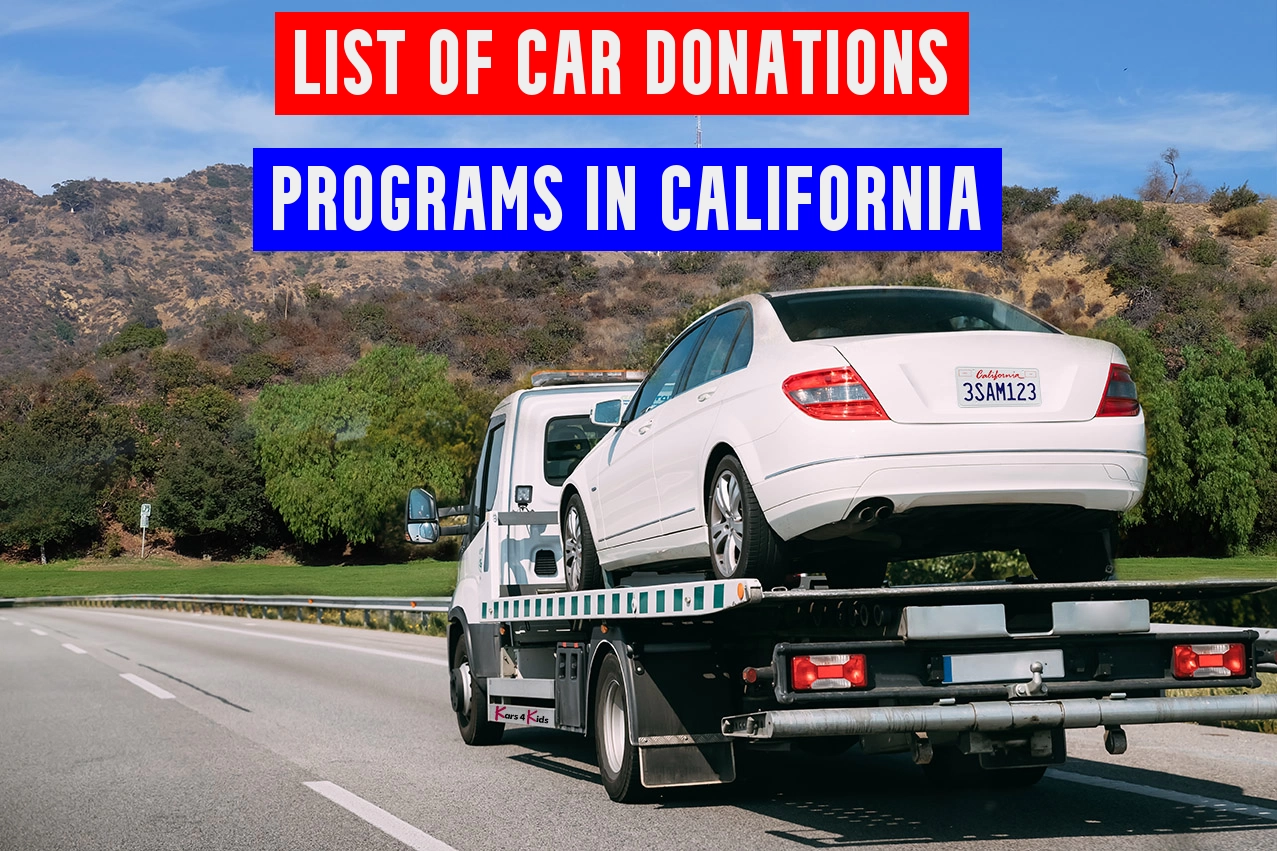Are you looking to make a difference in your community while getting rid of an unused car? Car donation is a powerful way to achieve both. Not only does it offer numerous personal and financial benefits, but it also supports charitable causes and helps the environment. In this article, we’ll explore the various advantages of car donation and guide you through the process.
Toc
Introduction of Car Donation

Car donation is the act of giving away an unwanted vehicle to a non-profit organization or charity. This can be done for various reasons, including wanting to get rid of an old car, looking for a tax deduction, or supporting a cause close to your heart. Whatever your motivation may be, donating your car is a meaningful way to make a positive impact.
What is Car Donation?
Car donation is a form of charitable giving that involves donating your unwanted vehicle, usually an automobile, to a non-profit organization or charity. This can provide much-needed financial support and resources for the organization, while also allowing the donor to receive tax benefits.
Why Donate Your Car?
Donating your car not only helps a charitable organization, but it also has benefits for you as the donor. These can include:
- Tax deductions: By donating your car to a qualified non-profit organization, you may be eligible for a tax deduction on your income taxes. This can help reduce your overall tax liability.
- Free up space and save money: If you have an old or unused car taking up space in your garage or driveway, donating it can free up that space and potentially save you money on maintenance and insurance costs.
- Make a positive impact: Your car donation can make a significant difference in the lives of those who benefit from the charity’s programs and services. Whether it’s supporting a cause you care about or helping those in need, your donation can truly make a positive impact.
- Environmental benefits: By donating your car, you’re also contributing to environmentally-friendly practices. Your vehicle will be recycled or resold, reducing the need for new manufacturing and ultimately decreasing pollution and energy consumption.erent non-profit organizations or charities that accept car donations and find one
How to Donate Your Car

If you’re interested in donating your car, here are the general steps to follow:
Choose a Charitable Organization
Start by researching different non-profit organizations or charities that accept car donations and find one that aligns with your values and interests. Consider factors such as the mission of the organization, how they use the proceeds from the car donation, and their overall reputation. You can often find reviews and ratings online to help guide your decision.
Confirm Donation Requirements
Before proceeding, ensure that your vehicle meets the donation requirements of the organization you’ve chosen. Some charities might only accept cars that are in running condition, while others may take any vehicle regardless of its state. Check for specific requirements such as title ownership, registration, and any additional paperwork needed.
Prepare Your Vehicle
Once you’ve chosen an organization and confirmed their requirements, it’s time to prepare your vehicle for donation. This can include cleaning the car, removing personal belongings, and gathering any important documents such as the title, registration, and insurance details. Make sure to take note of the vehicle identification number (VIN) and have it ready.
Arrange for Pickup or Drop-off
Most charitable organizations provide options for vehicle pickup or drop-off. Coordinate with the charity to schedule a convenient pickup time if they offer this service, or find out the necessary details to drop off your car. This step may also involve completing a donation form and providing the necessary documentation.
Handle the Paperwork
Completing the paperwork is a crucial step in the donation process. Make sure to transfer the title of the car to the charity and obtain a receipt for your donation. This receipt will be essential if you plan to claim a tax deduction. Additionally, check if you need to notify your local Department of Motor Vehicles (DMV) about the transfer of ownership to avoid any future liabilities.
Claim Your Tax Deduction
If you are eligible for a tax deduction, ensure you follow the IRS guidelines for documenting your charitable contribution. Depending on the value of your car, you may need to complete additional forms such as the IRS Form 8283. Keep all necessary records and receipts to support your deduction claim when filing your tax return.
By following these steps, you can successfully donate your car and enjoy the various benefits while supporting a cause you care about.

Aside from the personal and financial benefits, car donation also has a significant social and environmental impact. Here are some of the ways your donation can make a positive difference:
Community Benefits
Car donations play a vital role in supporting various social causes. Here are some ways your donation can make a difference:
- Supporting Nonprofits:
- Many charities rely on car donations to fund their programs and services. Your donation can help provide meals, medical care, education, and more to those in need.
- Success Story:
- A family donated their old minivan to the Make-A-Wish Foundation through the “Wheels for Wishes” program. The auction proceeds helped grant a child’s wish, directly illustrating the impact of car donation.
- Providing Job Opportunities:
- Charities may use your donated car to train underprivileged individuals in auto mechanics, providing them with valuable job skills and employment opportunities.
Environmental Benefits
Car donation also contributes to environmental sustainability. Here are some of the ways this happens:
- Reduce Pollution: By donating your car, you’re reducing the number of old vehicles on the road that contribute to air and water pollution.
- Decrease Energy Consumption: Recycling or reselling your vehicle decreases the need for new manufacturing, ultimately reducing energy consumption.
- Reduce Landfill Waste: Instead of ending up in a landfill, your car can be recycled or repurposed, helping to reduce waste and conserve resources.
By donating your car, you’re not only helping others but also making a positive impact on the environment. It’s a win-win situation for all involved! Overall, donating your car can have various benefits both personally and socially.
Personal Benefits

Aside from the community and environmental benefits, donating your car can also have a positive impact on you personally. Here are some ways:
Financial Benefits of Car Donation
One of the most significant incentives for donating your car is the potential tax deduction. When you donate your vehicle to a qualified charitable organization, you can deduct the fair market value of the car from your taxable income. This deduction can significantly reduce your tax liability, providing you with substantial financial benefits.
- Fair Market Value:
- The fair market value is the price you would reasonably get if you sold the car on the open market. It must be determined based on the current condition of the car.
- Itemizing Deductions:
- To claim the deduction, you must itemize your deductions on your tax return. Keep all receipts and documentation related to the donation for your records.
- IRS Requirements:
- Ensure the charity is IRS-qualified, and obtain a written acknowledgment from them. If the car is worth more than $500, you’ll need to complete IRS Form 8283. For vehicles worth more than $5,000, you’ll need to obtain an independent appraisal.
Simplifying Your Life
Donating your car can also simplify your life in numerous ways. Having an old or unused vehicle can take up valuable space and may lead to extra costs in maintenance or parking fees. By donating your car, you free up space in your garage or driveway, potentially reducing clutter in your life. Moreover, many charitable organizations handle all the logistics, from paperwork to vehicle pickup, making the process remarkably hassle-free for you.
Emotional Satisfaction
The act of donating can also bring a profound sense of emotional satisfaction. Knowing that your old car is now serving a better purpose and aiding those in need can be a fulfilling experience. This feeling can be further heightened if you donate to a cause that holds personal significance to you.
Common Misconceptions About Car Donation

It’s Too Complicated and Time-Consuming
Many people think that donating a car involves a complex and lengthy process. In reality, most charitable organizations have streamlined the car donation process to make it straightforward for donors. With many organizations offering free pickup and handling all the paperwork, donating a car can be a simple and quick experience.
Only Running Cars Are Accepted
Another common misconception is that charities only accept cars that are in perfect working condition. In fact, many organizations accept cars in various states of disrepair, from those with minor issues to those that are no longer running. These cars can either be repaired, sold for parts, or recycled, allowing the proceeds to benefit the charity.
You Won’t Get Any Financial Benefit
While the main motivation for donating a car should ideally be altruistic, it’s a misconception that donors won’t receive any financial benefits. Donating a car can come with substantial tax deductions, potentially reducing your tax liability. As long as the donation is to a qualified charitable organization and you have all the necessary documentation, you can claim these deductions when filing your tax return.
It’s More Beneficial to Sell the Car
Some individuals believe they will get more value by selling the car themselves rather than donating it. However, selling a car entails its own set of hassles, including advertising, negotiating with buyers, and spending time and money on repairs. Donating your car, on the other hand, provides a hassle-free way to benefit a charitable cause and receive a tax deduction, which may ultimately be more advantageous.
Small Donations Don’t Make a Difference
Many people assume that if their car isn’t worth much, it won’t make a significant impact. However, every donation counts and helps support vital programs and services provided by charities. Even if the car’s value is modest, it can still be an essential resource for the charity, whether it’s used to raise funds, provide job training, or offer transportation.
Addressing these common misconceptions can help potential donors make informed decisions, ensuring that they understand both the ease and the impact of car donation.
Real Exxamples of Car Donation Impact

Supporting Charitable Programs and Services
Car donations can have a direct impact on providing essential programs and services to individuals and communities in need. Many charitable organizations use the proceeds from car donations to fund various initiatives, such as food banks, homeless shelters, educational programs, medical assistance, and disaster relief efforts.
Providing Job Training Opportunities
Some charities use donated cars to provide job training opportunities to individuals facing barriers to employment. These programs often train participants in vehicle maintenance or repair skills, preparing them for careers in the automotive industry.
Offering Transportation Assistance
For many people living in disadvantaged areas or without access to public transportation, owning a car can be a significant challenge. Donated cars can help charitable organizations offer transportation assistance to those in need, whether it’s providing vehicles for daily use or organizing transportation for medical appointments and other essential trips.
Supporting Environmental Causes
Recycling donated cars is an environmentally responsible way to dispose of old vehicles. By recycling car parts or using the scrap metal, charities can reduce the environmental impact of discarded cars while also generating revenue to support their cause.
Conclusion
Donating a car is more than just an act of generosity; it’s an opportunity to positively influence the lives of countless individuals and communities. By choosing to donate your vehicle, you’ll be supporting critical charitable initiatives, helping people gain new skills and job opportunities, providing much-needed transportation aid, and contributing to environmental sustainability. This comprehensive act of charity not only simplifies your life but also turns your vehicle into a catalyst for change.









